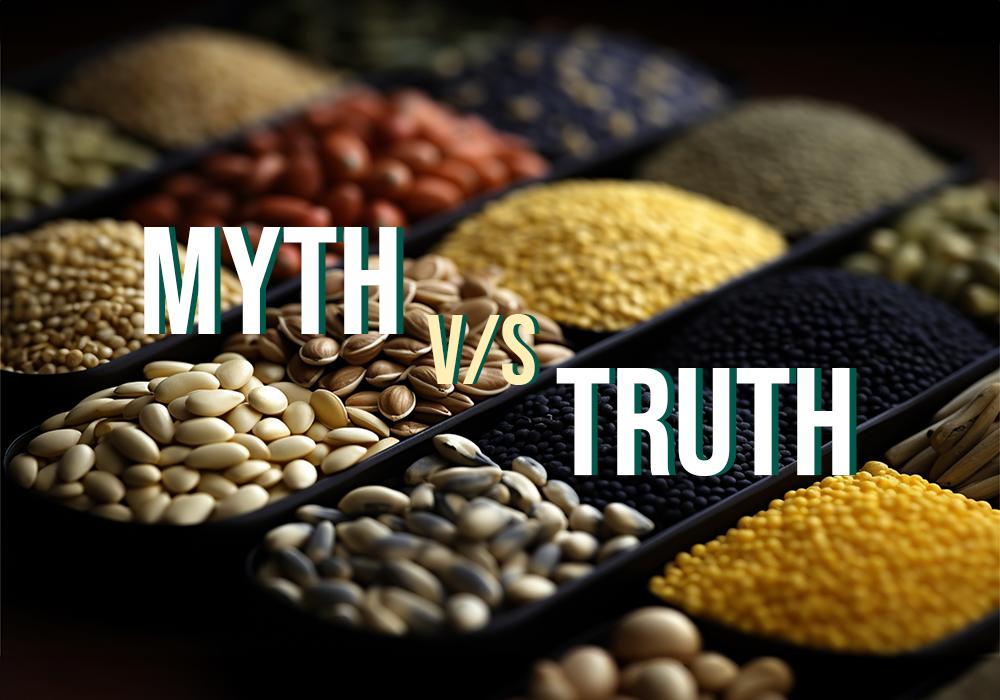Today, more people are looking to have organic foods as a part of their diet than ever before. In fact, following the pandemic, 70% of Indians planned to improve their health through dietary modifications. And organic foods seem to be a fantastic option. However, there still remain those who need more convincing.
This stems from a few factors, ranging from a need for more awareness to trust in organic foods. So, let us look at some common misconceptions and myths about organic food and prove why they aren’t very true.
Myth 1: Organic Food is Meant for the Elite
While it is true that some organic produce can be a bit more expensive than conventional-grown produce, the truth remains that there is a vast variety of organic foods available at different prices across the country. Some of these affordable options include produce that is sourced locally and in season. Additionally, with the Indian organic food market expanding (valued at $1,278 million in 2022) and growing more competitive, there has been an increase in demand, improvements in supply chains and price competition.
Myth 2: Organic Food is Not Readily Available
Over the years, the availability of organic foods has significantly improved in India, with many towns and cities having them in their stores. They are available in supermarkets as well as online, suiting the customer’s convenience. Consumers now also have the option to participate in organic food cooperatives or opt for organic produce delivery services as convenient ways to access a diverse range of organic products.
Myth 3: Organic Farming is Only for Niche Crops
Organic farming extends to a wide range of agricultural products, including staples like rice, wheat, and pulses, which form the core of the Indian diet. As organic farming is applicable to various farming systems, it is able to offer consumers healthier and chemical-free food options. Moreover, it also contributes to the overall sustainability and environmental well-being of Indian agriculture.
Myth 4: Getting an Organic Food Certification is Easy
Though the government encourages organic produce, getting a certification is not a simple process. In fact, it is costly and time-consuming. Firstly, the land needs to be converted for organic produce, then ensure all produce is natural, free from genetic modifications or chemicals, and follow sustainable agricultural processes. Plus, there are regular field inspections, compliance verifications and reviews. So, the process is not easy, but it is a must as consumers look for trustworthy sources to ensure the organic nature of the product.
Myth 5: Organic Farming is Not Viable for Farmers
For farmers, organic farming represents a sustainable and economically viable choice. After all, by not spending on expensive synthetic pesticides and chemical fertilizers, it lowers input costs while enhancing soil quality through composting and crop rotation. Several farmers have effectively shifted to organic methods, reaping its economic advantages. Nevertheless, this transition can be arduous, demanding support, education, and investment in organic techniques, which we at Organigram have always been committed to doing.
When it comes to food, it’s crucial to know the real benefits of organic farming and be aware of common misconceptions so you can make informed choices.


